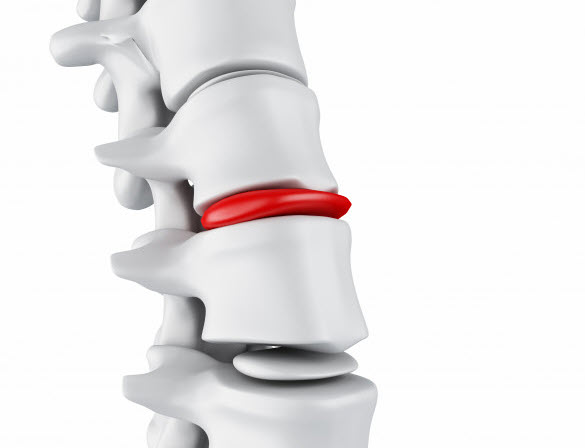A slipped disc in your back, also called a bulging disc or a herniated disc, can be a serious health problem that affects your ability to go about your daily life. The role of discs in your spine is to act as shock absorbers between your vertebrae so that your body can move comfortably and effectively in all directions. If a disc tears and leaks material that pushes outward to irritate adjacent nerves, the result can be pain in your lower back and legs.
Symptoms of a slipped disc may come on suddenly, even though usually it is related to gradual wear on your disc. Repetitive movement in your daily activities may cause wear, or sometimes twisting your back or lifting heavy object can stress your disc to the point of herniating.
Everyone’s symptoms of a slipped disc are not identical, so it may sometimes be hard to determine on your own if you have this condition. NYC Spine Surgeon Dr. Fischer at NYU Langone Medical Center in NYC in Manhattan is well-versed in diagnosing and treating patients with herniated discs. Before you make an appointment, you may want to be aware of these common signs of a slipped disc.
Lower body pain
A dull ache in your lower back and a shooting pain going down the back of your legs are the types of pain often associated with a slipped disc. This is a result of the substance leaking from your disc irritating your sciatic nerve, which runs down your legs. That’s why the pain radiates from your back all the way down, even to your toes. Some patients also experience numbness or weakness in their lower extremities. Pain from a slipped disc usually targets one side of your body more than the other. Moving can be especially painful, especially after sitting for an extended period of time.
Sudden pain
The discomfort from a slipped disc typically occurs suddenly; you may feel like it hits you out of nowhere. You may not be able to identify any obvious reason for the pain, such as an injury or trauma to your body. Pain related to a slipped disc can be severe, but it actually may not last more than a month or two. Some patients even report experiencing pain for only a few days and then it dissipates as suddenly as it came on. If pain comes and goes in this way, it can be a telltale sign of a herniated disc.
Increased risk factors
Although it can happen to anyone, some people are more inclined than others to have a herniated disc. One factor is age, with most patients being aged 35 to 50. Men are at a higher risk, as are people who are significantly overweight. Those with jobs demanding a lot of physical labor are also at a higher risk for disc herniation. If you experience pain common to a slipped disc and have any of these risk factors, it may be even more likely to be your condition.
If you have concerns that you might have a slipped disc, schedule an appointment with Spine Surgeon Dr. Fischer at NYU Langone Medical Center in NYC for an examination. You can learn about treatment options that will help you feel better and resume your regular activities.
Schedule an appointment today.

